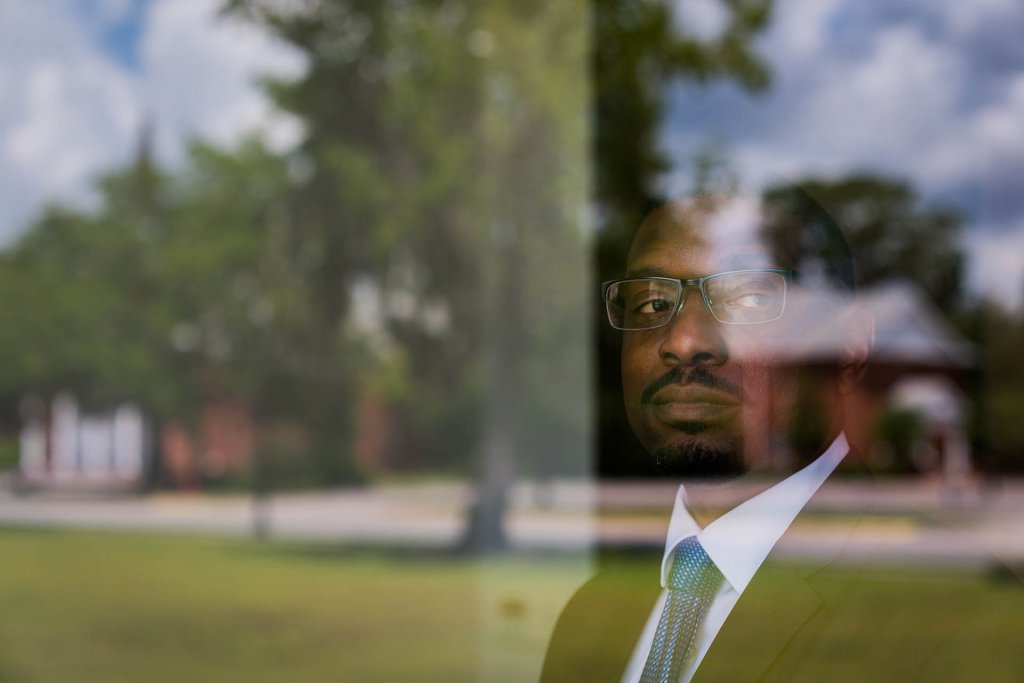When Deon Jackson was a freshman at The Citadel in 1995, he called his mother from a pay phone and told her that he wanted to come home.
“You can come home,” Janice Howard said to her son, “but I’m not coming to get you.” The next time Jackson called his mother and told her he wanted to come home, she said, “You can come home, but I’m not coming to get you, and you can’t come here.”
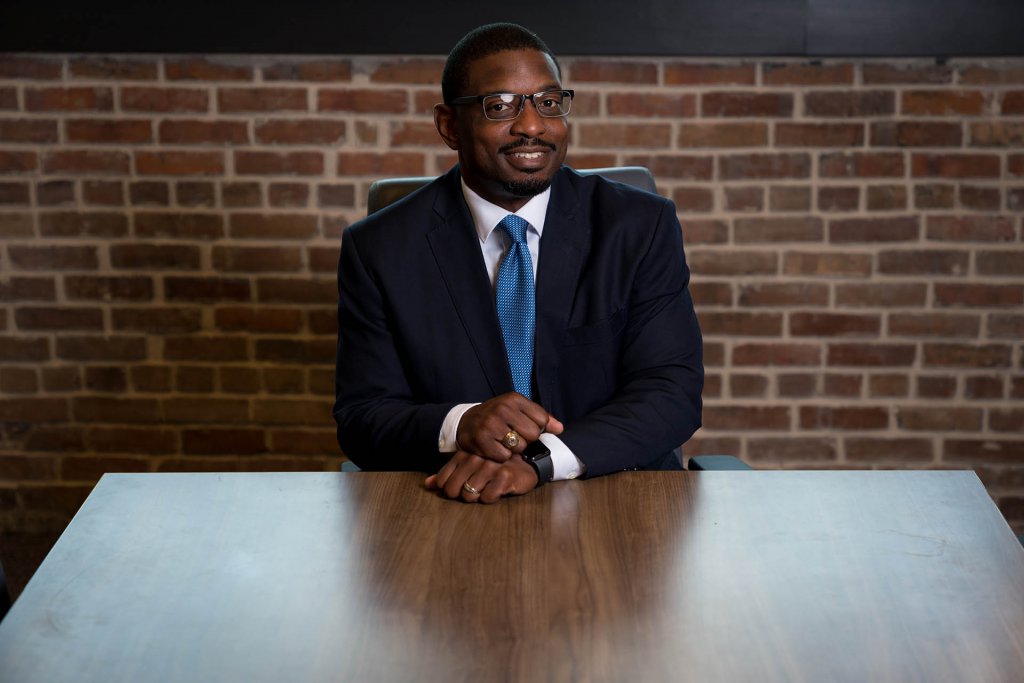
Howard’s no-nonsense response put an end to her son’s thoughts of leaving the military college. Home was 400 miles away in St. Petersburg, Florida. Jackson didn’t have a car, and even if he had, he didn’t have a place to live after he got there. Howard was a young, divorced mother of three. At one time, the family had lived in a one-bedroom apartment, but she worked hard—sometimes more than one job—and sacrificed a lot for her children, and they got by, eventually moving to a two-bedroom house.
“We didn’t have much,” said Jackson, “and I knew education was a way to get to where you wanted to go.”
Jackson played football at Boca Ciega High School in the Pinellas County School District. When then-recruiting coordinator Coach Kenny Carter, ’90, came to visit him, Jackson sat up and took notice of what the coach said about The Citadel.
“What sold me was, at that point in time,” said Jackson, “they told me The Citadel had a 98% job placement rate.”
Jackson was 18 when he visited campus for the first time. He had never been on an airplane, and he had never been to South Carolina, let alone Charleston or The Citadel. What he discovered were uniforms and structure. And when other colleges were offering him scholarships to play defense, The Citadel offered him an offensive running back position.
Jackson signed up.
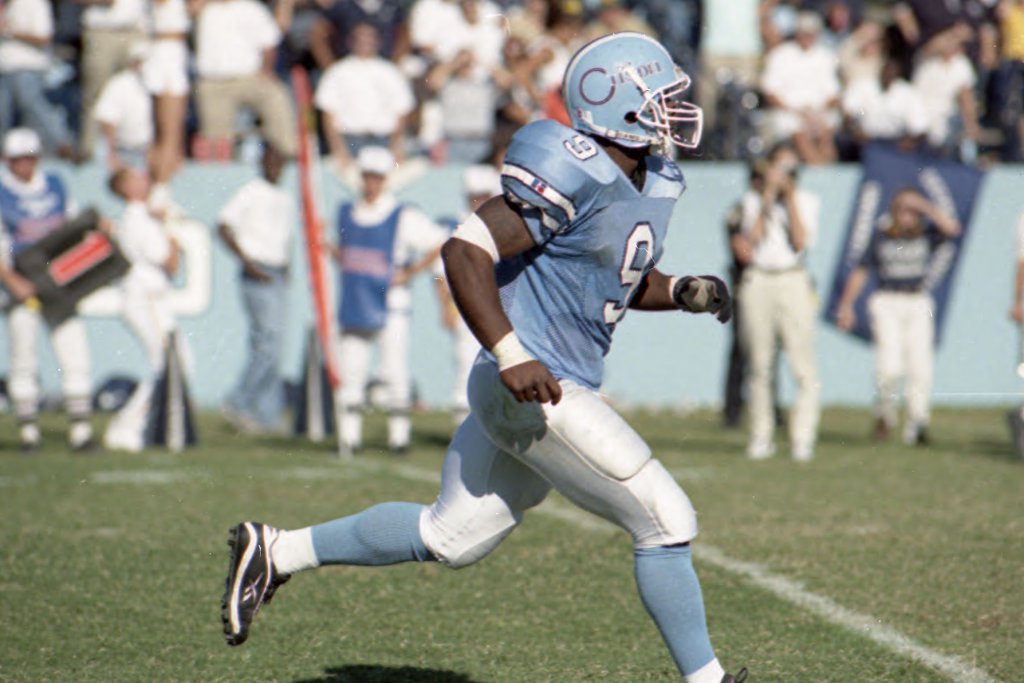
There were rough patches along the way. He had never shined shoes or brass or worn a uniform. There was what Jackson calls “direct communication” because he prefers not to say “yelling,” but he discovered that it was all for a purpose. Waking up early and going for a run to get the day started would become a lifelong habit. He also discovered leaders who made an impression and shaped his life—Citadel President Lt. Gen. Claudius Watts, who made sure the football team knew that he was behind them. Assistant Commandant Col. Tony Lackey, who guided him through a rocky path in his cadet experience. Head Coach Don Powers, a mentor whose quirky sayings sometimes left Jackson scratching his head. There were others, too—the ladies who worked in the mess hall and the gift shop, Ruby Murray in the library, along with Susan Redmond, Geri Jones and Sgt. Maj. Sylvan Bauer in Jenkins Hall. And as Jackson was making plans for a career in sports management and administration, there was Col. John S. Carter, a professor of health and physical education, who encouraged Jackson to pursue a teaching certificate so that he had multiple options.
“Like every other little boy who played sports,” said Jackson, “I was going to be a professional athlete.”
That was Jackson’s plan, but then he modified the plan. “Instead of being a pro athlete, I’m going to be the agent,” he told himself. “I’ll represent the pro athlete and have a similar lifestyle without all of the practice and weightlifting and the injuries and all of that.”
Jackson accumulated 18 hours of graduate credit as a fifth-year player. He was halfway through a master’s program in secondary school administration, and he was planning to take a gap year in Charleston to have fun when he got a call from Coach Johnny Roscoe of Lancaster County.
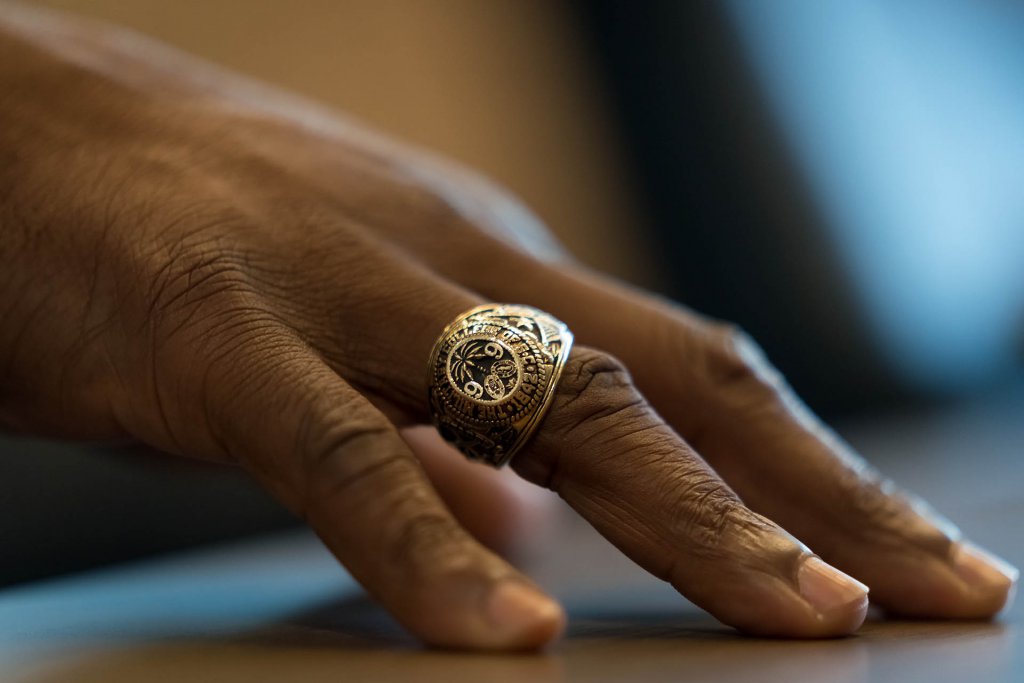
“Coach Roscoe is a legendary coach in South Carolina and North Carolina, but I had no idea who he was at the time. I had no idea where Lancaster County was at the time either.”
The year was 2000. Roscoe offered Jackson almost $40,000 a year to teach and coach, and the 23-year-old who had borrowed a car to go on the interview accepted without preamble. For the next two years, Jackson and his now-wife Adrienne burned up the road from Charleston to Lancaster County to see one another. Eventually, the drive got old, the couple needed to settle, and there was a master’s degree to complete, which made Charleston the obvious landing spot.
When Jackson interviewed at Goose Creek High School, the same school where he had completed his student teaching, Principal John Fulmer hired him on the spot. Jackson, who was happy to be back in the Lowcountry, forgot to ask exactly what he would be doing.
At Goose Creek High School, Jackson discovered he was teaching one physical education class. The rest of the school day, he served in an administrative capacity, and after school, he did what he loved most—he coached young student athletes, not just about game plays and strategies, but also about survival skills and life lessons.
Jackson was in his element.
“I was in the best shape of my life,” he said. “I had an opportunity to get some practical experience in administration. I was still able to coach, and then in the evenings, I would go to graduate school.”
Four years later, with a master’s degree in hand, Jackson moved on to Timberland High School, where he served as assistant principal. Four years after that, he was named principal at St. Stephen Middle School and then Cane Bay Middle School. And then it was on to the district office.
“What I like about education is the impact that it has on the lives of young people,” said Jackson. “You really have an opportunity to inspire and encourage and help young people develop into who they can become.”
In May, Jackson was named superintendent of Berkeley County School District. It was a position he never thought he wanted, but in 2017, when he was thrust into the interim position after the superintendent abruptly retired, he found he had an aptitude for picking up broken pieces, creating normalcy and structure after a period of uncertainty.
“If it were just me, I’d be living on an island somewhere, living off the land and fishing every day. It’s not really for me—it’s truly to have an impact on the lives of these students and their families and the greater community,” said Jackson. “A school district is uniquely positioned to do all of those things through the resources that it has and also the partnerships. You have to be a good listener. You have to care about people. You have to be consistent because children respect consistency. I think they will push back against rules and structure, but the more consistent you are, the more they appreciate it.”
With the pandemic interrupting a smooth start to the academic year, Jackson is currently busy seeking solutions to problems. And he’s casting his net wide to ensure that students who attended school virtually for a year and a half are successfully reintroduced to the classroom. He realizes, too, that education needs to evolve to incorporate the successful elements of distance education.
“As long as we can deliver consistent, quality instruction, should that be eliminated from the realm of possibility? I don’t think so,” he said. “We talk about a teacher shortage, and this option may be a way to address some of those shortages by offering some flexibility in where we allow people to work.”
It’s a hot topic that many people debate, Jackson acknowledges, but it’s a conversation he wants to begin. For specialty areas, like career and technology classes where professionals are not likely to leave a high paying job for the classroom, the opportunity to supplement their exciting careers with virtual classroom instruction may be an option.
Providing resources to students and opening doors so they can see what’s available is important to Jackson. And when he comes across a student who seems like a good fit for The Citadel, he recommends his alma mater.
“I love The Citadel,” he said. “There are things I learned at The Citadel that I didn’t realize I was learning until after I got out. I still walk at a pretty swift pace, not quite 120 [paces per minute], but I walk at a pretty swift pace.”
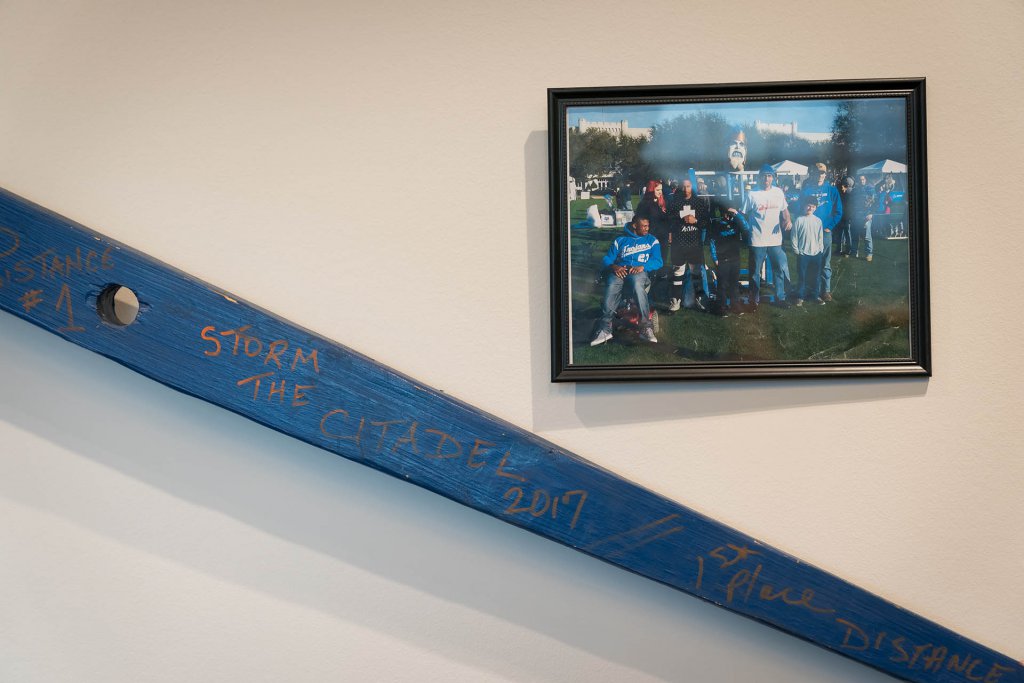
On the hardwood floors in the renovated Berkeley High School that was built in 1929 and now serves as the district office, the staff knows when Jackson is coming. The sound of his swift steps is unmistakable. Also unmistakable is the difference his 21-year career has made for scores of students. There are stories of young athletes down on their luck, stories of young scholars struggling because of circumstances beyond their control, and stories of students in need of guidance, understanding or resources. And many times over, those stories had a happy ending because as a concerned administrator, Jackson took an interest, extended a hand, coached and came up with a solution.
Another unexpected student he influenced: Janice Howard. When Jackson earned his undergraduate degree, he inspired his mother to go back and earn hers. And when he earned his master’s degree, Howard earned one too. During the career hullabaloo of the last few years, Jackson has put the doctorate degree that he’s been working towards on hold. When he finally finishes, Howard just may find that she has another goal, too.
